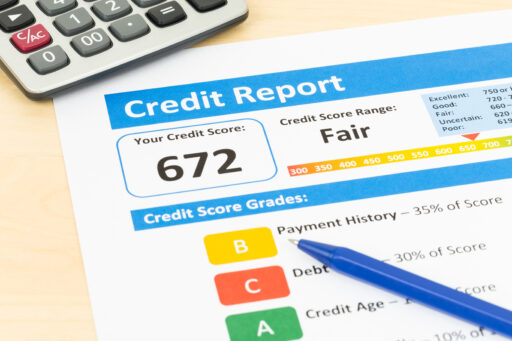*Disclaimer: This content is for informational purposes only and should not be taken as financial advice.
If you’ve ever heard someone say “let your money make money,” they were talking about compound interest.
It’s one of those simple financial truths that actually works… quietly, consistently, and often without much effort on your part. You don’t need to gamble in the stock market or chase crypto trends. You just need to park your money somewhere it grows on its own.
Here are five types of compound interest accounts that can help you grow your money faster, whether you’re saving for an emergency fund, a house, or long-term financial freedom.
Table of Contents
Key Takeaways (Q&A Format)
What is a compound interest account?
A compound interest account is any account where you earn interest on both your original deposit and the interest that’s already been added. Over time, that “interest on interest” effect helps your money grow faster than with simple interest.
Which account types offer the best compound interest in 2025?
High-yield savings accounts, certificates of deposit (CDs), money market accounts, government I bonds, and retirement accounts like 401(k)s or IRAs all use compounding to grow your balance over time.
How can I earn the most from compound interest?
Start early, choose accounts that compound daily, and keep your money invested or saved consistently. The longer you leave it untouched, the faster the compounding snowball grows.
Are compound interest accounts safe?
Most are extremely safe. FDIC-insured savings, CDs, and money market accounts protect up to $250,000 per depositor. Treasury bonds and I bonds are backed by the U.S. government.
Can I lose money in a compound interest account?
You generally can’t lose principal in insured accounts. The only real “risk” is missing out on higher returns if you move your money too soon or pick an account with low rates.
1. High-Yield Savings Accounts
Think of a high-yield savings account as your everyday money’s upgrade. It works just like the savings account at your local bank, but with interest rates that actually make a difference.
Online banks compete harder for your deposits, so they offer APYs between 4% and 5%, which is miles better than the 0.01% you’d get from a traditional branch.
Why it’s a good move:
- You can access your money anytime.
- Interest compounds daily, meaning you earn interest on your interest.
- FDIC insured up to $250,000.
Good options right now:
- UFB Direct High Yield Savings: around 5.25% APY.
- Barclays Online Savings: roughly 4.35% APY.
- Capital One 360 Performance Savings: often near 4.25% APY.
If you’re keeping your emergency fund in a regular savings account, moving it to a high-yield account can be one of the easiest financial wins you’ll ever make.
>>> More: Capital One High-Yield Savings Account Review: 360 Performance Savings Explained
2. Certificates of Deposit (CDs)
If you’re okay locking up your money for a set amount of time, a CD can guarantee a fixed return. It’s perfect for funds you won’t need for a while, like a house down payment or next year’s vacation.
You agree to leave your money in for a certain period, say, 6 months or a year, and the bank rewards you with a higher rate.
Here’s what’s great:
- Fixed, predictable growth.
- FDIC insured, just like savings accounts.
- Rates can go as high as 5.5% depending on the term and bank.
What to watch out for: You’ll pay a penalty if you withdraw early. To keep flexibility, many savers “ladder” their CDs, splitting deposits into several terms so something matures every few months.
3. Money Market Accounts
Money market accounts are like the middle ground between checking and savings. They typically earn solid interest (around 4% APY) but still let you write checks or use a debit card occasionally.
Why people like them:
- You get easier access than CDs.
- Rates are often the same as top savings accounts.
- They’re just as safe (FDIC insured).
A few solid picks include Quontic Bank, CIT Bank, and Discover Money Market.
If you like the idea of earning while still having access to your cash, this one’s for you.
4. Treasury Bonds and I Bonds
Government bonds don’t get enough love. They’re backed by the U.S. government, which means they’re about as safe as it gets, and they use compounding to grow your money quietly over time.
I Bonds, in particular, are great when inflation is high because their rate adjusts every six months.
Why they’re worth a look:
- They protect your money from inflation.
- No state or local taxes.
- You can buy them directly through TreasuryDirect.gov.
They’re not ideal for quick cash, since you need to hold them for at least a year, but they’re a solid pick for long-term savers who want something ultra-safe.
>>> Learn more about I Bonds on the U.S. Department of the Treasury website.
5. Retirement Accounts (401k, Roth IRA, Traditional IRA)
Here’s the truth: no account on this list compounds like a retirement account does.
When you contribute to a 401(k) or IRA, your money grows tax-deferred (or tax-free, in a Roth). Every dollar earned stays in the account and compounds; dividends earn dividends, and that snowball keeps rolling for decades.
Example: If you invest $250 a month at an average 7% annual return, you’ll have over $295,000 in 30 years, even though you only put in $90,000.
That’s the power of compounding, and it’s why the best time to start is always today.
If your employer offers a match, that’s free money compounding alongside yours. Don’t leave it on the table.
Why Compound Interest Is the Real “Passive Income”
Most people think passive income means building a business or buying rental properties. But the truth is, compound interest is the simplest form of passive income there is.
It’s your money working while you sleep… no hustle, no stress. The more consistently you save, the faster the compounding snowball grows. Even a small deposit today can turn into something meaningful down the road.
How to Make the Most of Compound Interest
A few smart habits can make a big difference:
- Start now. The earlier your money starts compounding, the less you need to contribute later.
- Automate everything. Set up automatic transfers so saving happens without you thinking about it.
- Reinvest earnings. Never pull out the interest. Let it keep building.
- Keep comparing rates. Banks change offers all the time. Stay flexible.
The Bottom Line
Growing wealth, especially from nothing, isn’t about luck; it’s about time and consistency.
The sooner you get your money into an account that compounds, the faster it starts working for you. Whether that’s a high-yield savings account, a CD ladder, or a retirement plan, the key is to start and stay consistent.
Because when you understand compound interest, you realize it’s not just about making money, it’s about giving your future self a better shot at freedom.
🚀 Explore, Learn & Grow with Wallet Monkey!
Unlock the latest tips, tricks, and expert insights on money management, credit, and more. Subscribe now and stay ahead of the curve in personal finance!
Subscribe Now*Editorial Disclaimer: The information provided in this article is for educational purposes only and does not constitute financial, investment, or legal advice. Wallet Monkey aims to provide accurate and up-to-date information, but we encourage readers to verify details directly with financial institutions. Some of the products mentioned may be from Wallet Monkey partners, which may influence how they appear. However, our recommendations are based solely on what we believe provides genuine value to readers.






